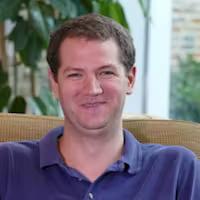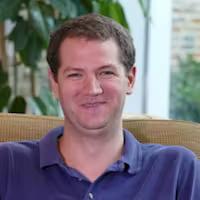This course is part of Programming for Python Data Science: Principles to Practice.
This comprehensive course is designed for novice programmers aspiring to become data scientists, software developers, data analysts, machine learning engineers, data engineers, or database administrators. It covers foundational computer science concepts, including object-oriented programming and data organization using sets and dictionaries, before progressing to more complex data structures like arrays, vectors, and matrices. With a focus on NumPy, students will gain essential skills to tackle big data challenges and solve data problems effectively. The course includes hands-on practice in writing Python programs to manipulate and filter data, as well as create insights from large datasets. By the end, students will be proficient in summarizing datasets, optimizing data analysis with vectorization, and randomizing data. The curriculum spans various data science challenges, including mathematical operations, text file analysis, and image processing, preparing students for rewarding careers in data science.
1,745 already enrolled
Instructors:
English
What you'll learn
Master NumPy for efficient data manipulation and analysis in Python
Understand and apply object-oriented programming concepts in data science
Utilize sets and dictionaries for effective data organization and retrieval
Work with complex data structures including arrays, vectors, and matrices
Develop skills in data summarization, including calculating averages, minimums, and maximums
Learn advanced techniques in data analysis optimization through vectorization
Skills you'll gain
This course includes:
1.5 Hours PreRecorded video
4 quizzes, 4 programming assignments
Access on Mobile, Tablet, Desktop
FullTime access
Shareable certificate
Closed caption
Get a Completion Certificate
Share your certificate with prospective employers and your professional network on LinkedIn.
Created by
Provided by

Top companies offer this course to their employees
Top companies provide this course to enhance their employees' skills, ensuring they excel in handling complex projects and drive organizational success.





There are 4 modules in this course
This course provides a comprehensive introduction to essential data science tools and techniques using Python, with a focus on NumPy, sets, and dictionaries. Students will progress from foundational concepts in object-oriented programming to advanced data structures and analysis methods. The curriculum is divided into four modules, covering: 1) Sets and Dictionaries for data storage and manipulation, 2) NumPy and Vectors for efficient data handling, 3) Matrices and Arrays for complex data representation, and 4) Advanced techniques in data summarization, performance optimization, and randomization. Throughout the course, students will engage in practical assignments and quizzes, applying their skills to real-world data science challenges such as mathematical operations, text analysis, and image processing.
Sets and Dictionaries: Storing and Working with Data
Module 1 · 13 Hours to complete
NumPy and Vectors
Module 2 · 5 Hours to complete
Matrices and Arrays
Module 3 · 6 Hours to complete
Summarizing Datasets, Performance Optimization, and Data Randomization
Module 4 · 4 Hours to complete
Fee Structure
Individual course purchase is not available - to enroll in this course with a certificate, you need to purchase the complete Professional Certificate Course. For enrollment and detailed fee structure, visit the following: Programming for Python Data Science: Principles to Practice
Payment options
Financial Aid
Instructors
Associate Professor of the Practice
Andrew Hilton is an Associate Professor of the Practice in the Department of Electrical and Computer Engineering at Duke University's Pratt School of Engineering, where he has been teaching since 2012. Before joining Duke, he worked as an advisory engineer at IBM. One of the key courses he teaches is ECE 551, an intensive introduction to programming designed to equip graduate students with no prior experience to master programming and tackle advanced courses. In 2015, Professor Hilton received the Klein Family Distinguished Teaching Award for his excellence in teaching. He holds a Ph.D. in Computer Science from the University of Pennsylvania.
Assistant Professor of the Practice at Duke University
Dr. Genevieve M. Lipp is an Assistant Professor of the Practice in the Electrical and Computer Engineering and Mechanical Engineering and Materials Science departments at Duke University. She teaches a variety of courses, including programming in C++, dynamics, control systems, and robotics. Dr. Lipp is passionate about integrating technology into education to enhance learning outcomes and has previously worked in the Center for Instructional Technology at Duke. She holds a Ph.D. in mechanical engineering, focusing on nonlinear dynamics, as well as a B.S.E. in mechanical engineering and a B.A. in German, both from Duke University. In addition to her teaching responsibilities, she serves as the Director of the Duke Engineering First Year Computing program, where she focuses on improving computing education within the engineering curriculum and fostering students' self-efficacy in their studies.
Testimonials
Testimonials and success stories are a testament to the quality of this program and its impact on your career and learning journey. Be the first to help others make an informed decision by sharing your review of the course.
Frequently asked questions
Below are some of the most commonly asked questions about this course. We aim to provide clear and concise answers to help you better understand the course content, structure, and any other relevant information. If you have any additional questions or if your question is not listed here, please don't hesitate to reach out to our support team for further assistance.





